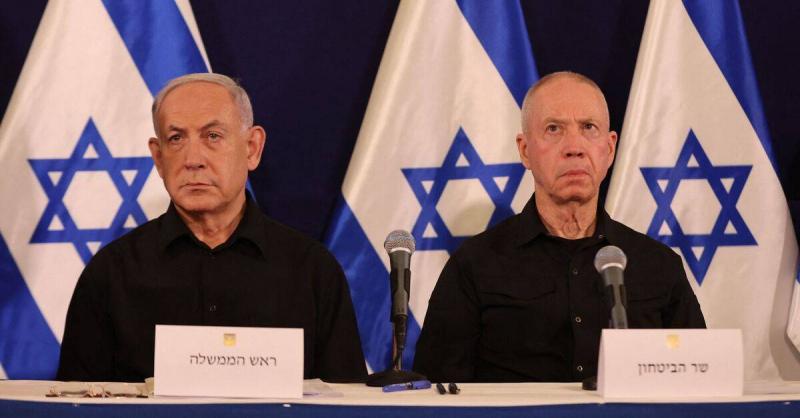Amid the progress in negotiations for a prisoner exchange deal between Israel and Hamas, Israeli media reports have highlighted differences between Prime Minister Benjamin Netanyahu and Defense Minister Yoav Gallant. Gallant abstained from attending a meeting that Netanyahu held with the heads of Mossad and Shin Bet. Netanyahu had previously rejected Gallant's request for a private meeting with the heads of Mossad and Shin Bet to discuss the details of the prisoner exchange. Netanyahu told Gallant that "the meeting must take place in my presence," emphasizing that he is the one who chairs "the small security cabinet."
Israeli Delegation Sent Led by Mossad
On Thursday, Netanyahu's office convened a security cabinet meeting to discuss proposals from Hamas, where Netanyahu approved sending a delegation to begin detailed negotiations on the prisoner exchange. Netanyahu’s office reported that the prime minister informed U.S. President Joe Biden of his decision to send a delegation to continue negotiations on the prisoners, led by the head of Mossad (without specifying where these negotiations would take place), stressing that Israel would not end the war until all of its objectives were achieved.
To Doha
In contrast, the White House stated that Biden welcomed Netanyahu's decision to allow Israeli negotiators to engage with American, Qatari, and Egyptian mediators in an attempt to reach a ceasefire agreement. The statement added that the two leaders discussed the latest response from Hamas.
Not a New Disagreement
It is worth noting that the disagreement between Netanyahu and Gallant is not new; the prime minister had previously attempted to dismiss Gallant from the government before yielding to significant protests that forced him to retract his decision to exclude his rival. In May, an unprecedented public verbal dispute erupted between Gallant and Netanyahu regarding the management of the Gaza Strip after the war. Gallant criticized the delay in reaching an agreement on Gaza's future, arguing that continued hesitation could lead to a military occupation of the territory, a scenario he firmly rejected due to the risks it would pose to Israel's security, along with the prohibitive financial, military, and political costs that Israel could not afford.




